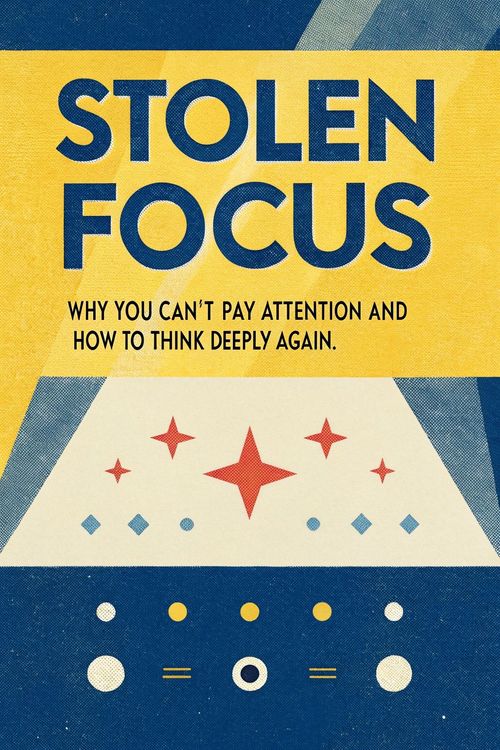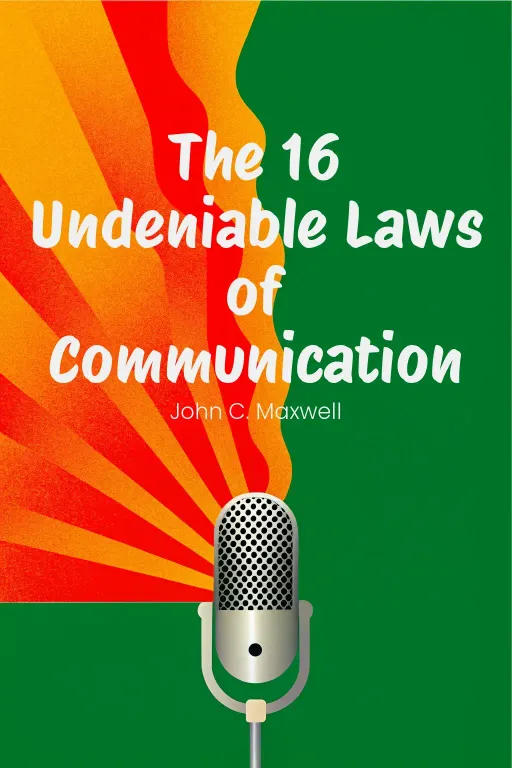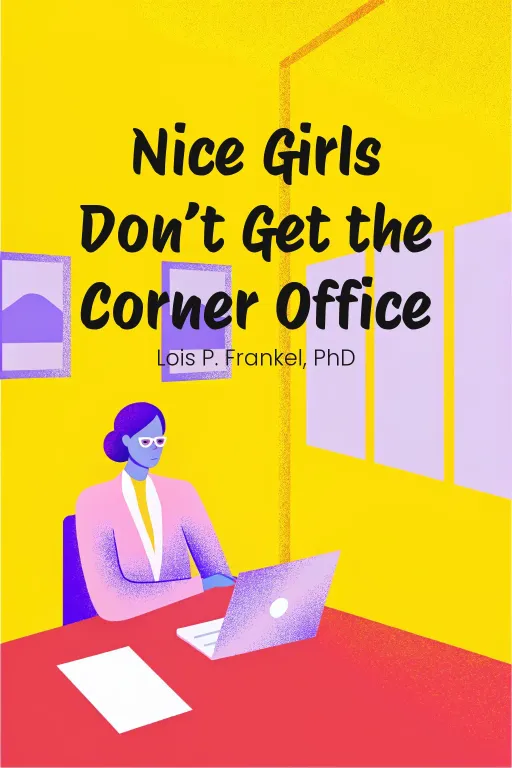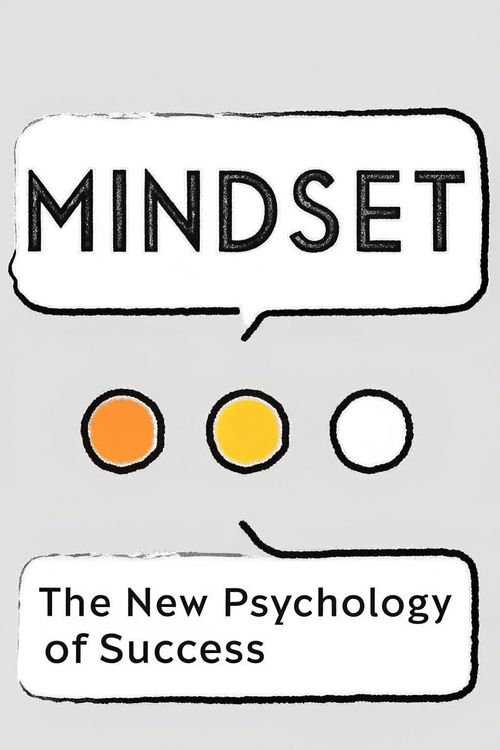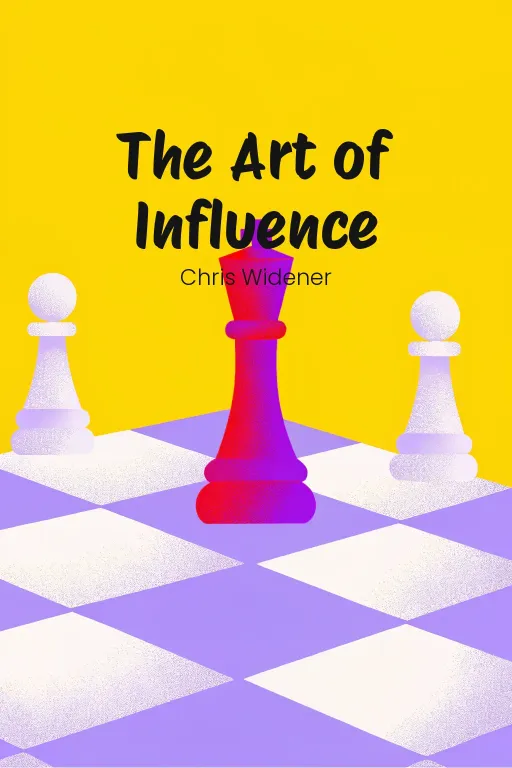
Speak Up: Connect & Inspire Everyone
Podcast by Beta You with Alex and Michelle
Apply Them and Make the Most of Your Message
Introduction
Part 1
Alex: Hey everyone, welcome to the show! I’ve got a question for you: Ever walked away from a meeting, a presentation, even just a conversation, thinking, "Ugh, that “totally” didn’t land the way I wanted it to?" Michelle: Oh, tell me about it. Or worse, you get those blank stares – my personal favorite is when you get the polite nod, right? Like, "Okay, you're talking, but I'm “so” not listening." Seriously. Communication? It's way more than just yapping; it's about actually “connecting” with people. Alex: Exactly, Michelle! And that's why today we are diving into John C. Maxwell’s "The 16 Undeniable Laws of Communication." This book, honestly, it could unlock the secret to becoming a communication master. Maxwell doesn't just give you tips; he lays out, like, 16 foundational laws. That will actually transform not just “how” you speak, but how you inspire. How you connect and empower others. Michelle: Okay, so this isn't like one of those "how to give a perfect TED Talk" kind of guides, right? Alex: Not exactly. It's a bit more profound. It’s about how authentic communication – communication “rooted” in credibility, clarity, and real connection – can create meaningful change. Maxwell looks at all these techniques, like storytelling, observation skills, keeping things simple, to help you turn words into real action, you know? It's about mastering the balance between being prepared and being spontaneous, knowledge and intuition. And it's all tied to those laws. Michelle: Hmm, sounds useful, but also sounds like walking a real tightrope here. Um, so what exactly are we going to cover today? Alex: Good question. We're going to look at this through three lenses–three key areas. First, we're going to dive into Maxwell's idea of building a foundation. I mean, authenticity and credibility. Think of it as laying down the pillars for great conversation. Michelle: Right, because no foundation, the house collapses, got it. And then what? Alex: Next up is the magic of good and effective communication skill– how to really engage with an audience. Whether you're speaking to a huge auditorium, or just your five person team. Michelle: Ah, I get it. And this is where we probably crack open some of those storytelling gems that Maxwell loves so much. Alex: Exactly! And finally, we’ll explore the lasting impact of really great communication—not just your life, but how it shapes relationships, teams and maybe even society itself. Michelle: Okay, so communication is more than just the words, it's like, your legacy? Gotcha. Alex: I couldn't have said it better myself. Let's jump in!
Authenticity and Credibility
Part 2
Alex: Okay, so let's dive into authenticity and credibility. Really, it's where effective communication “starts”, you know? I mean, you can have the slickest presentation, but without those two? Forget about it. It’s like building a house—if the foundation's weak… Michelle: Exactly, it all falls apart, right? And Maxwell basically says trust and integrity “are” that foundation. So, authenticity… is that just about being honest, or is there something more to it? Alex: Definitely more. Authenticity comes from being transparent and, honestly, being a little vulnerable. It's not just telling the truth, It’s about showing who you really are, warts and all. Maxwell cites Brené Brown, and she makes such a key point: authenticity is a “choice”. It's about letting people connect with “you”, not just the words you're saying. Michelle: Okay, I get that in theory. But how do you do that without, you know, becoming a total over-sharer? Where's the line between "relatable" and just plain "awkward"? Alex: That's a great point. It’s all about, as Maxwell says, "strategic transparency." You share just enough to connect, but always thinking about the value “you're adding” to the audience. Like, instead of just complaining about a failure, talk about what you learned from it. Turn it into a growth story! Michelle: Vulnerability with a purpose. Makes sense. And that’s where credibility comes in, right? Because, let’s be honest, people aren’t going to care about your lessons if they don’t think you know what you’re talking about. Alex: Exactly! Credibility is the other major piece. Maxwell talks about it as a mix of competence and consistency. Authenticity gets their attention, but being competent earns respect. People have to trust that you know your stuff, and that comes from preparation and expertise. Michelle: Which reminds me of that Warren Buffett quote, “If you can't communicate, it's like winking at a girl in the dark—nothing happens.” It's not enough to just speak; you have to actually “say” something worthwhile, right? Alex: Absolutely! Competence means making your knowledge accessible, too. Think about Margaret Thatcher— "The Iron Lady." Her nickname wasn't just about her toughness; it was about her consistent ability to deliver with clarity and conviction. Michelle: Right, and she had the track record to back it up. That brings us to consistency, aligning your words with your actions. Because if you say one thing and do another... that’s a killer, right? Maxwell mentions Gandhi during the plague in Johannesburg—powerful example. Alex: It is. He didn’t just talk about helping the sick, he was “there”, caring for them, organizing relief. He lived his message. That consistency built trust. Michelle: So, it's not just lip service, it's action. Now, let me ask, is there a way to “fake” credibility? You know, "fake it till you make it" kind of thing? Alex: Maxwell would say no way. Credibility takes time, solid time, to build. It's about establishing those patterns of competence, consistency, and trustworthiness. You might fool some people for a little while, but those cracks will show eventually. Michelle: And the trust you build creates emotional safety, right? When you trust someone, you engage more deeply, you can really listen. Alex: Yes! Think about JFK during the debates. He had this calm, measured way about him, that created a sense of emotional safety. People trusted his ability to lead, and that made his message so much more persuasive. Michelle: So, it all works together. Authenticity draws people in, competence holds their attention, and consistency and trust… that’s what makes your message really stick. It's like building a bridge; authenticity and credibility are the pillars, and trust is what lets people cross and connect. Alex: I love that. And Maxwell gives us “actionable” ways to build that bridge. Be transparent, share your story, train hard in your field… anyone can work on these things. Michelle: So, don’t make promises you can’t keep, actively listen… It's about “who you are” as a communicator, not just what comes out of your mouth, right? Alex: Precisely! And that's when you move beyond just talking, to building connections that “really” inspire and endure.
Audience Engagement and Connection
Part 3
Alex: So, building on the foundation of authenticity and credibility, the next big thing is engaging and connecting with your audience. It's not just about “what” you say, but “how” you translate those principles into meaningful connections. How do you move beyond just talking “at” people to truly connecting with them? Michelle: Right, so this section is about the how, right? We’ve established why authenticity is important, now we need the practical steps. How do you actually make your message resonate? Let's dig into Maxwell's take on how to truly connect with an audience. Alex: Exactly. One of his core principles here is Active Listening. Now, I know that sounds like a bit of a buzzword, but Maxwell takes it to a different level. He sees it as a dynamic, two-way street. It's not just about speaking “at” someone; you’re actually listening and responding in real-time, building trust and a shared understanding. Michelle: Hold on, a "two-way street"? Most people think of communication as one-way, I talk, you listen. Are you suggesting the listener has just as much responsibility in maintaining the connection? Alex: Precisely. Maxwell flips the script, emphasizing that listening is not passive. You're not just hearing with an open ear, but engaging with an open mind, responding to both verbal and non-verbal cues. Think about a mentor leading a meeting. If someone is visibly disengaged, arms crossed, leaning back – an active listener notices and might draw them back in with a direct question. It shows you care, and that fosters trust. Michelle: Interesting. So, it's more than just polite nodding; it's about tuning in to what isn't being said. But doesn't that require a lot of focus? If you're giving a presentation, how do you even catch those subtle signs? Alex: Good point! Maxwell admits it takes effort, but he offers actionable tips to stay alert. Things like maintaining eye contact, pausing often to ask reflective questions, and responding to emotional undertones in their voice, or their body language. He even emphasizes practicing silence. I think that's so underrated. No one likes to be interrupted mid-sentence. Michelle: Practicing silence? So, instead of jumping in with solutions or leading the conversation, you just give people room to process their thoughts? Alex: Exactly! Silence gives others space to fully express themselves, leading to deeper insights. Maxwell even shares a powerful story about a young mom on a virtual call, her kid's crying in the background, and she kept apologizing. Instead of ignoring it, he paused to say, "I know how hard it must be to juggle everything right now." That small gesture transformed the interaction into a moment of real connection. Michelle: By acknowledging what's really happening, you show people they're seen, even when things are chaotic. I like that. Okay, now onto storytelling. Maxwell loves this, doesn’t he? Alex: He does! And for good reason – Storytelling is one of the most impactful ways to create an emotional connection. People remember stories; they don't remember bullet points. Think about Martin Luther King Jr.'s "I Have a Dream" speech. It wasn’t just rhetoric; it painted a picture everyone could step into. Maxwell argues that the best stories tap into shared experiences or universal emotions like hope, struggle, or triumph. That’s what resonates. Michelle: Right, okay, devil's advocate question here. Doesn't storytelling risk becoming theatrical, or manipulative, even? How do you balance impact and authenticity? Alex: That's a great question. Maxwell has a framework called the SHARE method for structuring stories effectively and ethically. It stands for Show, Help, Amplify, Relate, and Enjoy. Every piece has a purpose. For instance, "Show" means setting the scene with vivid imagery. While "Help" ensures the story has value, like a lesson or a shift in perspective. By following this structure, your storytelling stays purposeful and not self-indulgent. Michelle: So, it's not just about creating drama for the sake of drama; it’s about guiding the audience somewhere meaningful. Any good examples of this in action? Alex: Definitely. Maxwell talks about a speaker who won over an audience by describing the chaos and humor of a typical parent's morning: the spilled coffee, the screaming kids, the mismatched shoes. For parents in the audience, that scenario was instantly relatable. By starting with something that brought them together, the speaker created an emotional bridge that allowed the deeper message to land. Michelle: Okay, so, connecting the dots here. Active listening builds trust, storytelling builds relatability, so where do empathy and contextual awareness fit in? Alex: Empathy is the glue that holds everything together. It’s about recognizing the nuances of your audience's experiences and tuning into their emotional state. Maxwell gives an example of John F. Kennedy's first televised presidential debate. By looking right into the camera, he made millions of viewers at home feel like he was speaking directly to them, including them. It wasn't random; it was an intentional choice to adapt to the medium and make the audience feel included. Michelle: So, being aware of the context allows you to meet people where they are, right? It’s about making the audience—not yourself—the focus of the conversation. Alex: Exactly. Empathy also requires adapting based on the immediate situation. For instance, Maxwell mentions a tech presenter who changed their message mid-conference when they noticed the developers were tuning out. Instead of sticking to the general pitch, they started referencing recent breakthroughs directly related to the developer's work. That shift regained their attention because it was relevant. Michelle: And that leads perfectly into contextual adaptation, which is honestly fascinating. Think about someone like Margaret Thatcher who excelled here. She adjusted her tone and language to fit the moment, like in her “harmony” speech during times of national discord. Alex: Absolutely! Context is everything. Maxwell talks about adapting to cultural nuances, changing your style in formal versus informal settings, adjusting your timing to heighten the impact of an idea. The goal is to leave your audience feeling informed and understood. Michelle: Okay, so here’s where we bring it all together: active listening, storytelling, empathy, and adaptation aren't separate tactics. They work together to create a true connection. You can’t really have one without the others. Alex: Precisely! And when these strategies come together, communication becomes more than just a transaction; it becomes transformational. You leave a lasting impression, inspire action, and create collaboration that lasts long after the conversation is over.
Legacy and Continuous Growth
Part 4
Alex: So, with all these engagement strategies, our final topic looks at the bigger picture: How communication helps us grow as individuals and as a society. Basically, Maxwell asks, “How does communication build lasting legacies, support lifelong learning, and truly impact future generations?” Michelle: Ah, so we're moving beyond just tips and tricks, and getting into the “why” of it all. What can effective communication really achieve in the long run? Alex: Exactly! It's about the long-term impact – personal growth and societal change. Legacy and continuous learning aren't just about being a perfect speaker; it's about creating a ripple effect that continues far beyond a single moment. Michelle: Okay, I’m listening. Let’s unpack this whole legacy thing first. Maxwell says it's not just about what you say, but also how you inspire and empower others. In practice, what does that actually look like? Alex: It really comes down to mentorship. Great communicators don't just keep their ideas to themselves; they share them and empower others to spread those ideas further. Maxwell uses John Vereecken in Latin America as an example. For decades, Vereecken mentored people not just as a role model but as someone who enabled change. His impact wasn't just his direct work; it sparked empowerment across entire communities. Michelle: Right. So, what makes that kind of mentorship really effective? Is it enough to just give people opportunities, or is there something more to it? Alex: It's more than just opportunity. Maxwell explains that true mentorship involves sharing your vision, not just your knowledge, and really believing in people's potential. Vereecken didn’t just train leaders; he instilled in them a mindset to lead change on their own. That’s what amplified the impact of his work. Michelle: So, the goal is to be a multiplier, not just a messenger. You are not just delivering a message, and make sure the message thrives even when you’re not around. Alex: Precisely! That's how you build a legacy, by empowering people to carry your message forward. Maxwell even says it shifts the focus from "What can I achieve?" to "How can I help others succeed?" Michelle: Interesting. And that leads to this whole idea of empowerment, right? Maxwell says legacy isn’t just about leading people; it’s about giving them the tools and confidence to act independently. Alex: Exactly! Effective communicators create environments where empowerment can thrive. Maxwell mentions a study to prove it. Students were urged to get tetanus vaccinations. Fear-based messaging—you know, graphic images—didn't really work. But when they got maps and schedules for vaccine clinics, vaccination rates jumped from 3% to 28%! Michelle: So, clear, practical guidance beats fear every time. People need action plans, not just flashy words. Alex: Exactly. Empowerment works because it removes obstacles. Maxwell connects this directly to communication, pointing out that clear, step-by-step guidance builds trust and gets people moving. It's like Maxwell once said, “What I taught on Sunday needed to be easy to apply on Monday.” Michelle: Makes sense. If your audience can’t turn a big idea into something real, your message just disappears. So, how can we bring this empowerment into our everyday communication? Alex: Clarity and simplicity are key. Empowerment means understanding where people are and meeting them there, breaking big goals down into smaller steps. Think of that tetanus map – it didn't assume people knew where to go. Maxwell insists communication only works when it's grounded in real-world application. Michelle: Okay, but here's my question: empowering others sounds great, but what about us as communicators? How do we keep growing if we're so focused on others? Alex: Great question! That's where continuous refinement comes in. Maxwell argues that great communicators use feedback and collaboration to fuel their growth. They don’t settle; they constantly iterate and improve, often using their audience as a mirror. Michelle: Feedback, huh? Not exactly everyone's favorite thing. Most people avoid it or take it personally. How does Maxwell make it work? Alex: He sees feedback as fuel. It's not just listening to what people say, but being observant—seeing body language, gauging engagement, and paying attention to questions. Maxwell says every interaction is a chance to improve. Michelle: Fair enough. But what about collaboration? It feels a little less clear—does it mean co-presenting with others, or something broader? Alex: Collaboration goes beyond just being on stage with someone. Maxwell encourages rehearsing with trusted friends, brainstorming ideas together, and seeking out different points of view. Constructive teamwork sharpens not just what you say but how you say it. If you’re open to learning, your message resonates even more. Michelle: That's pretty humble. Sounds like Maxwell's whole philosophy rests on the idea that learning never stops. Alex: Absolutely! He even sees communication as a living craft. Every conversation, speech, or presentation hones your skills further. That's probably how he's delivered over 13,000 speeches and still actively analyzes his own performance! Michelle: And I think that feeds directly into legacy. If you’re still growing, you’re setting an example for others to do the same, creating a cycle of improvement. Alex: Exactly! And this cycle reflects how communication shapes society. When communicators focus on growth, mentorship, and action-oriented empowerment, their work inspires widespread change. It's not just about their success; it’s about building a foundation for others to thrive. Michelle: I like that connection. It reframes communication not just as a way to express yourself, but as a way to serve others and collaborate. When done well, it's not just impactful now, it lasts for generations. Alex: Precisely. And Maxwell’s main point is this: a communication legacy isn’t about being remembered for what you say, but for what your words inspire others to do.
Conclusion
Part 5
Alex: So, to sum up, we've unpacked some really impactful ideas from Maxwell's “16 Undeniable Laws of Communication”. We started with how crucial authenticity and credibility are—being transparent, consistent, and trustworthy, that's your foundation you build upon. Then, we dove into building genuine connection through active listening, sharing stories that resonate, and using empathy to “really” connect with your audience. Michelle: Right. And finally, we zoomed out to look at the bigger picture—communication as a lifelong pursuit, “really”. Whether it’s shaping future leaders through mentoring or empowering others to act, Maxwell makes it clear that effective communication isn’t just about being a good speaker, it’s about leaving a real impact. Alex: Exactly! So, the core message here is: great communication is all about others, not yourself. It’s about leading with authenticity, connecting with purpose, and equipping others to grow. Ask yourself, are your words building bridges or just adding to the noise? Michelle: And, perhaps more importantly, what kind of legacy are we creating every time we communicate? Because ultimately, it’s less about what we say and more about what our words inspire others to do. Alex: Couldn't agree more. Thanks for tuning in today! Keep building those connections, and we'll catch you next time. Michelle: See you!




